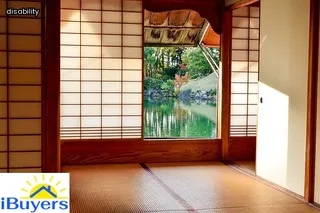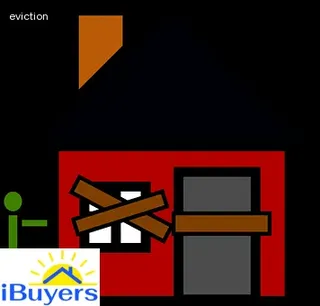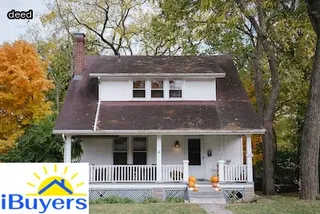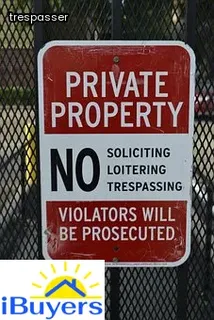Squatting and trespassing are two closely related, yet distinct concepts in the realm of property law. Squatting is the occupation of a vacant property or land by an individual or group without the permission of the legal owner.
Trespassing, on the other hand, is defined as entering onto someone’s land without legal authorization or permission. Both squatting and trespassing can be civil or criminal offenses depending on a variety of circumstances.
In general, squatting is considered to be a trespass crime and criminalized in many states unless specific conditions are met. For example, some states may recognize squatters who have occupied an abandoned property actively for a certain period of time as having full legal rights over the property while others may require that they pay rent or taxes to maintain their claim to it.
It is important to note that both squatting and trespassing can be charged as misdemeanors or felonies depending on the level of damage done to any property involved. Understanding these distinctions as well as relevant laws governing squatter's rights in each state can help individuals avoid potential legal risks associated with occupying another person's land without proper authorization.

The history of squatting and trespassing in the United States dates back to the colonial period, when settlers began taking possession of land without permission from the government. Squatters’ rights have evolved over time, with different laws applying in different states.
In some places, a squatter can gain legal title to a property after occupying it for an extended period. In other places, however, squatting is illegal and punishable by fines or imprisonment.
The issue has been further complicated by changes in land ownership and the rise of gentrification. While it is possible for a squatter to gain legal title to a property in many parts of the US, existing laws do not always provide full protection.
It is important to understand the current laws and regulations in place before attempting any kind of squatting or trespassing activity. This comprehensive guide will explore the history of squatting and trespassing in the United States, as well as provide an overview of existing laws and regulations that could affect your rights as a squatter or trespasser.
Squatting has a long history in the United States, and it's important to understand the differences between what is and isn't allowed when it comes to squatters' rights. Each state has specific laws regarding squatting, but there are some general guidelines that can be used to distinguish legal from illegal squatting.
Generally speaking, one must prove they have taken possession of the property by performing certain acts such as making improvements to the land or paying property taxes. If a person can prove they have been living on the property without permission for a certain period of time, they may be able to gain ownership rights through adverse possession.
However, if someone enters another person's land without permission or fails to make an effort to pay taxes or take care of the property, then they are likely considered to be trespassing and will not be granted any rights under squatters' laws.

Squatting is a term used to describe the act of occupying an abandoned or unoccupied space or building, usually residential, that the squatter does not own, rent or otherwise have permission to use. Squatter's rights vary widely across the United States and understanding them is essential for anyone considering taking up residence in this way.
In some states, squatters may be able to acquire legal title over time if they meet certain criteria such as paying taxes on the property and making improvements. Other states, however, do not recognize any form of squatter's law.
In all cases, squatters must be aware that they are trespassing and are subject to eviction at any time by the rightful owner or authorities. Additionally, there are often local regulations that govern how long someone can occupy a space without the owner’s knowledge before it is considered illegal.
It is important to know what rights you have as a squatter in your state before entering into any agreements with an owner or taking up residence on their property.
Squatting is a controversial issue that has been debated in the United States for some time. It is important to understand the legal implications of squatting before proceeding with any action.
Generally speaking, squatting is considered illegal in most states, as it involves occupying a property without the consent of the owner. A person who squats on someone else's land without permission may be subject to civil and criminal penalties, including fines or even jail time.
However, there are some situations where squatting can be permissible under certain circumstances. For example, if a squatter moves into an abandoned or neglected property and pays taxes on it for a certain amount of time, they may gain legal ownership rights.
Additionally, in some areas, squatters may have the right to remain on the property for an extended period if their occupancy is not contested and they pay rent to the landlord or owner at market rate. It is essential that those considering squatting familiarize themselves with local laws in order to determine whether it is an option worth pursuing.

When it comes to squatters’ rights, the best approach is to be proactive and understand the laws in your specific state. Squatters’ rights are a complex issue and can vary greatly from state to state.
It's important to realize that the process for resolving disputes involving squatters’ rights is not always straightforward. In some cases, depending on the situation, squatters may have certain legal protections under common law or state statutes, while in others they may not.
Knowing what strategies are available is essential when attempting to resolve a dispute as quickly and efficiently as possible. If eviction proceedings become necessary, it may be wise to consult an attorney who can help navigate the process.
Additionally, certain states allow for settlements outside of court which could save time and money if both parties are willing to come to an agreement. Ultimately, it is crucial that those affected by squatters’ rights understand their legal options so they can make fully informed decisions prior to taking any action.
Squatting can provide many advantages to those who are unable to secure traditional housing. Establishing a presence through squatting can give individuals access to resources that would otherwise be out of reach, such as water, electricity, and even land ownership.
It also provides a sense of security and belonging for those who may not have access to the same opportunities in their communities. Additionally, it can be an important tool for political activists looking to make a statement or draw attention to an issue.
Squatting also offers the potential to build community by connecting individuals with similar goals and ideals, while providing them with an opportunity to support each other in creating meaningful change in their lives. Furthermore, establishing a presence through squatting allows people to take advantage of unique opportunities that come with owning property without having to pay the high cost associated with purchasing or renting it.
Finally, squatters' rights exist in many states across the US, giving legal protection and recognition to those who establish themselves through squatting.

Living as a squatter can be an attractive option to many people, particularly those with limited financial resources. However, there are some major drawbacks associated with this lifestyle that must be taken into consideration before embarking on the journey of squatting in the United States.
One such disadvantage is the lack of legal rights afforded to squatters, who can be evicted without warning and without any recourse. Additionally, because living as a squatter often means living without access to basic utilities like running water and electricity, squatters may find themselves in dangerous and unsanitary living conditions that can lead to serious health issues.
Finally, the presence of crime in many areas where squatting is prevalent may put individuals at risk for both physical harm and theft. These risks should all be considered before making a decision about whether or not to pursue a life based on squatters' rights.
Building relationships with property owners when occupying a space under squatter's rights can be challenging, but having a good understanding of the laws in your area can help you navigate the situation. It is important to understand that squatting laws vary from state to state, so research should be done before taking action.
Being honest and respectful is key to forming a successful relationship with property owners. One strategy for making contact is to try and reach out to the previous owner or tenant, who may still have access rights or even ownership of the property.
If this isn't possible, identifying the current legal owner by searching public records such as tax documents and deeds can help you establish contact. Once you have connected with the current landowner, it is beneficial to present yourself in a respectful manner and explain why you are using their property.
Having a conversation about how you plan on using the space while respecting their boundaries will go a long way in developing an amicable relationship between both parties. Additionally, understanding local ordinances related to squatting as well as any potential fees or fines associated with squatting will also ensure that both parties are well informed and protected throughout the process.

Resolving conflicts between property owners and squatters non-violently is an important aspect of understanding the rights of both parties. Although there are no one-size-fits-all solutions, there are a few key strategies that can be beneficial for non-violent dispute resolution.
Negotiation is often the first step, which can allow both parties to come to a mutually beneficial agreement. Mediation may also be an option, in which a neutral third party facilitates conversation between the two sides in order to reach a resolution.
Education is another potential solution, as it promotes understanding of existing laws related to squatting and encourages communication between the property owner and squatter. Finally, legal recourse may be necessary when all other options have been exhausted—the comprehensive guide to squatters' rights in the United States can provide valuable information regarding local statutes and regulations that pertain to these situations.
Ultimately, engaging in respectful dialogue as early as possible and utilizing any available resources can help ensure satisfactory outcomes for both parties involved in a non-violent conflict resolution process involving property owners and squatters.
Squatting can be a financially beneficial choice for those exploring their legal rights to occupy and use a property, as long as the terms of the squatting are understood. In the United States, squatters' rights are established by state law, meaning that the specifics vary depending on where one is situated.
For example, in some states it is possible to gain title to an abandoned property after a certain amount of time has elapsed, while other states may grant the squatter temporary occupancy if they can prove they have been living in the residence for a certain period. It is important to understand what rights come with occupying a dwelling through squatting because it could be possible to establish financial security and even ownership of a home despite not having had access to traditional housing financing.
Establishing residency also brings certain protections against eviction which can provide further financial security for those who take advantage of this legal option.

Squatters' rights are a centuries-old legal concept which, in the United States, grant limited legal rights to an individual occupying and living in an abandoned or otherwise unoccupied property. While these rights can potentially provide much-needed shelter to those without homes, there are some limitations on who can legally occupy a property through squatters' rights.
Generally speaking, an individual must be occupying the property openly, peaceably and continuously for a set period of time before they can claim squatters’ rights. Additionally, an individual cannot legally occupy a property if it is owned by someone else; rather, they must occupy properties which have no known owner or that have been abandoned by the owner.
Furthermore, while many states do allow individuals to establish some form of ownership over certain properties occupied by squatters' rights over time, this is not always the case and should not be relied upon until it has been established through proper legal channels.
When it comes to the rights of squatters in the United States, there are a couple of different forms of occupation that come into play. The first is a verbal agreement between two parties, where one party allows another to use their property without any legal paperwork or binding contract.
This type of agreement may not provide squatters with many legal protections if they are asked to leave. The second form is a tenancy agreement, which is usually done by signing a lease or rental agreement.
This provides certain rights and responsibilities for both parties and allows for an easier resolution should one party break the agreement. Comparing these two types of agreements can be helpful for those looking to understand their rights as squatters in the US.
Verbal agreements may seem like an attractive option due to their ease of use, but they often do not provide much protection for either side in the event that either breaks the agreement. On the other hand, tenancy agreements give both parties more security and can ensure that all involved are treated fairly when it comes time to move out or renegotiate terms.

The ethical considerations of occupying a property under the protection of squatters’ rights in the United States are complex and potentially contentious. Property owners may feel that their rights have been violated by those who have taken up residence on their land, even if it is legally allowed according to local statutes.
On the other side, squatters may feel that they have not been given a fair chance to secure or purchase property, or that they have been unfairly denied access to basic housing needs. In all cases, both parties must be aware of their legal rights and obligations when dealing with such situations, as well as any potential implications for current and future occupants of the property.
It is essential to understand how squatter law works in order to make informed decisions about whether or not such an occupancy arrangement is right for all involved. This comprehensive guide will provide information on the legalities surrounding squatting in different states across America and explore some of the ethical issues associated with this practice.
By familiarizing oneself with these laws and understanding how they might impact one’s choices, both sides can make more informed decisions about what is best for everyone involved.
Navigating the legal process to gain access to unoccupied properties can be a complex and confusing task. For those considering getting involved in squatting, it is important to first understand the laws that govern this practice.
Different states have varying regulations regarding squatting rights – some places have very strict laws, while others may have slightly more lenient approaches. It’s essential for anyone interested in claiming an abandoned property to be aware of the legal implications of doing so.
Knowing your rights as a squatter is key to avoiding potential problems down the road. In some areas, squatters may need to register with local authorities or follow certain procedures before they can legally occupy an unclaimed property.
Additionally, certain requirements may need to be met in order for a squatter to establish legal ownership rights over an abandoned dwelling. Understanding these complexities is essential for anyone hoping to move into an unoccupied space without facing any legal ramifications.
By having a comprehensive understanding of squatter’s rights and how they vary by state, individuals can make informed decisions on how best to pursue this type of housing option.

Comparing and contrasting different types of passive income is an important part of understanding the various options available to individuals who are looking to generate income without expending a lot of their own time and energy. Passive income can include rental income, dividend income, or other forms of investment such as real estate.
Rental income requires an initial investment in a property, but then generates revenue over time while the owner is not actively involved in managing it. Dividend income requires investing in stocks that pay dividends to shareholders and will generate a steady stream of cash flow each quarter.
Real estate investments can be particularly lucrative if the investor has knowledge and experience in determining which properties are likely to appreciate or depreciate in value over time. Ultimately, understanding the potential advantages and disadvantages associated with each type of passive income will help squatters better understand their rights under US law.
Creating passive income streams is a great way to generate additional revenue. Squatting can be an attractive option for those looking to make money but not wanting to invest a large amount of capital.
Squatters' rights in the United States vary by state, so it's important to understand the laws in your area before taking this route. Depending on where you live, squatting could be an effective way of creating passive income streams without having to purchase property or other more costly investments.
Knowing how long of a time period you can remain on the property and what rights you have as a squatter are essential pieces of information needed when assessing whether or not this form of passive income is right for you. It's important to consult with legal professionals and gain a full understanding of all the risks involved with squatting before making any commitments.

For those looking to build passive income sources, it is important to understand the legal implications of squatting in the United States. Squatting is a form of self-help possession and comes with certain risks that must be taken into account when attempting to establish passive income sources.
It is important to have a comprehensive understanding of what constitutes squatters' rights, as well as the legal requirements and limitations they entail. In some states, local and state governments have passed laws that provide squatters with certain protections, such as being able to remain on the property for a minimum period of time before being forced off by law enforcement.
Additionally, in certain cases, a squatter may even be able to claim title over property if he or she is able to prove continuous occupancy for an extended period of time. Knowing how these laws vary from state to state can be essential for those looking to build passive income sources through squatting.
Understanding how squatters' rights work can help ensure that any potential investments are secure and will not come with unexpected costs or liabilities later on down the line.
Squatting has long been a contentious issue in the United States, with debates over how to balance individual rights with the need to protect property owners. For many homeless people, squatting is an opportunity to access housing they would not be able to afford otherwise.
On the other hand, it can also cause significant damage to a property and strain public resources. In order to better understand this complex issue, it is important to look at its impact on housing justice in the US.
A comprehensive guide to squatters' rights looks at how different states have addressed this issue and what legal protections are in place for both squatters and homeowners. This includes examining how squatting affects homelessness rates, rental prices, and property values.
It also looks at enforcement strategies used by local governments and organizations that work with squatters. Understanding these dynamics is essential for creating policies that promote fairness for all parties involved and ensure that everyone has access to safe and affordable housing options.

Squatting in the United States is typically governed by both traditional laws and regulations. Generally, a squatter must occupy a property without permission from the owner to be considered a squatter, and they must have done so for an extended period of time to have any legal rights.
Squatters may acquire title to the land through adverse possession if they can prove that they have occupied and improved it for a certain number of years and paid any applicable taxes. Squatters also have some rights even if no title is acquired, including the right to stay on the property until the owner takes action in court or the squatter chooses to leave.
In addition, squatters may be able to claim compensation from the owner for any improvements made or services provided in exchange for rent or payment. Finally, squatters may be protected under tenant protection laws if their occupation was authorized by an owner who accepted rent or other payment from them.
When it comes to squatter rights in the United States, one state stands out for having the best protection for individuals claiming rights over abandoned property. In the state of Texas, squatters have some of the strongest legal protections in the country.
The Texas Property Code outlines that a squatter may gain legal ownership of a property after living there continuously for three years, even if they don't have permission from its original owner. This is known as adverse possession and can provide squatters with an alternative path to owning real estate.
As long as they are able to prove that they fulfilled certain requirements (such as paying taxes on the property or making improvements) and meet certain time limits, they could potentially own a piece of land without ever having bought it. Texas is not alone in providing strong protections for squatters; other states such as Alaska and New Mexico also offer robust rules and regulations for adverse possession.
However, given its combination of clear statutes and court decisions supporting squatters’ rights, Texas remains one of the best jurisdictions in America when it comes to protecting those who take advantage of these laws.

Squatters' rights, or adverse possession, vary from state to state in the United States. In most states, a squatter must occupy a piece of land in an open, notorious, and hostile manner for a certain period of time before they can gain title to it. These time periods typically range from seven years up to 20 years.
In some states, squatters must also pay the property taxes and make necessary repairs to the property during the stated time period. California requires squatters to occupy and improve the land for at least five years before gaining title. Texas requires continuous occupation for 10 years before title is granted.
Arkansas requires seven years of hostile and continuous occupation. Colorado requires 18 years of uninterrupted occupation with visible signs of improvement to gain title. Arizona requires continuous occupation for 10 years as well as payment of all taxes due on the property during that period.
Some states have laws that specifically exclude squatters from gaining ownership while others are less clear on their laws regarding squatters' rights. It is important to note that in all states, squatters cannot claim any kind of right or title to government or public lands nor can they claim rights or ownership over any land owned by another person without their permission or knowledge.
Squatting in the United States has become a contentious and controversial issue, with many people questioning why the US has squatters' rights. Squatting is defined as occupying a property, such as a house or land, without permission from the owner.
Squatters’ rights are laws that protect those who are living on another person’s land without their permission and provide them with certain rights. The laws vary between states, and while they may not provide full ownership rights, they do provide squatters with certain protections.
In some cases, squatters can acquire ownership of a property through adverse possession if they meet certain requirements. This includes occupying the property for a specified amount of time, paying taxes on the property, and making improvements to it.
These laws exist to protect people who have no other means to obtain housing and give them an opportunity to gain ownership of a home or land that would otherwise be unavailable to them.
In the United States, squatters' rights are a common law concept granting certain legal rights to individuals who occupy land or property without the permission of the owner. Under the law, if an individual can establish that they have been living on the property continuously for a certain amount of time, they may be able to claim some legal protection from eviction.
The exact length of time varies from state to state, but typically ranges from 7 to 20 years. If an individual has been living on the property for this duration without interruption, then they may be able to assert squatter's rights and gain some protection from eviction.
However, it is important to note that in order to successfully claim squatters rights, an individual must provide evidence that they have been occupying the land continuously and without interruption for the required length of time. Furthermore, even when squatters' rights are established in one jurisdiction, any subsequent transfer of ownership will invalidate those claims unless specifically recognized by the new owner.
It is therefore important that individuals understand their local laws regarding squatter's rights before attempting to make any claims.
A: Generally, squatters must occupy the property openly and notoriously, have exclusive possession of the property, and use it as a tenant would. The amount of time necessary to establish squatters rights varies by state.
A: In most states, it is necessary to provide an eviction notice to a squatter with disabilities before attempting to evict them, regardless of whether they have a month-to-month lease. If the squatter does not comply with the eviction notice within the time frame set out in their state laws, then legal action may be taken to remove them from the property.

A: Yes, in states with squatters rights, trespassers can gain certain legal rights if they occupy a property for a certain amount of time.
A: In most cases, a renter paying rent to the owner of a property does not affect the owner's title or their rights under squatters laws. The renter has no right to claim ownership over the property or any portion of it, and thus cannot gain squatters rights.
A: Under New York State’s statutory law, a squatter may gain legal title to property if they occupy and continuously possess the property for a period of 10 years or more. This includes New York City and Manhattan.

A: The Homestead Act of 1862 granted homesteaders 160 acres of public land to settle on, provided they paid a small filing fee and had resided on the land for five years. This act allowed individuals to gain title to the land through a process known as squatter's rights.
A: Squatters rights, also known as adverse possession, is a legal doctrine in which an individual gains ownership of property by occupying it without permission from the rightful owner for a prescribed period of time. In the United States, each state has its own statutes that govern squatters rights.
A: Squatters Rights, or Adverse Possession, is a legal doctrine that allows an individual to gain ownership of someone else's property if they occupy it for an extended period of time, typically in excess of seven years.

A: Squatters rights refer to the legal right of an individual who has been occupying a property without permission from the owner for an extended period of time. A squatter may acquire certain rights under certain circumstances such as if they have entered into a lease agreement with the homeless or have obtained color of title (i.e., possess a document that appears to give them title to the property) and have paid real estate taxes on it, even though they don’t legally own it. However, this does not give them the right to trespass on another’s property without permission.
A: Squatter's Rights, also known as adverse possession, is a legal principle that allows a person to gain ownership of another person's land or property if they have been occupying it for a certain length of time, usually under 10 years.
A: Renters and homesteaders who occupy a property for a certain period of time may acquire legal title to the property through Adverse Possession. The process for Ejectment involves filing a complaint in court against the squatters in order to regain possession of the property.
A: Tenancy at Will is a form of squatters rights which allows someone to occupy real property without any contract or agreement between the occupant and the owner of the land. It is an arrangement that exists between two parties, where one party has permission from the other to occupy a certain piece of land in exchange for periodic rent.
A: Squatters rights, also known as adverse possession, is the legal principle that allows a person to gain ownership of a property if they have lived there for a specified period of time without the permission of the legal owner. In many states, this period of time is between 5-30 years.
A: The legal term for Squatters' Rights is Adverse Possession, which refers to a process of homesteading in which an individual can gain ownership of a property through continuous occupancy for a period of time set by state law, usually 7-20 years. Once this period has been met, the squatter can then be ejected from the property by the court through a process called Ejectment.
A: Squatters rights refer to the legal principle that allows a person occupying land or property without permission of the owner to gain legal title to it, after a certain period of continuous occupation.
A: These terms are all related to the legal concept of gaining ownership of a property without having it legally conveyed. Squatters’ Rights refer to the rights that a squatter may claim if they have occupied a property for an extended period of time without permission from the legal owner. Property Law is the laws that govern dispute resolution regarding who actually owns a given property. Adverse Possession is when someone occupies someone else’s land with the intention to possess it and meets certain criteria in order to gain title to that property. Homesteading is when an individual moves onto vacant land and fulfills certain requirements in order to gain title of that land.
A: Squatters Rights are legal protections for individuals who have occupied a property without the permission of the legal owner. These rights typically include the right to remain on the property and to make improvements to it, as long as they pay any applicable taxes and do not cause harm to other people or damage to the property.
A: Squatters' Rights, also known as Adverse Possession, allow individuals to claim legal ownership of a piece of property that they have continuously occupied without the permission of the owner for a certain period of time. This is often done through Homesteading, where individuals use abandoned or unclaimed land and make improvements to it.
A: You should seek the advice of an experienced real estate attorney to ensure your rights as a squatter are protected. They can advise you on the specifics related to your particular situation, including what steps must be taken to establish and maintain your legal rights as a squatter.
A: Squatters rights refer to the legal right of a person to retain possession of land they occupy and use without any legal title, such as a deed or lease. In some states, these rights may be protected by law.
A: Squatters' Rights, also known as Adverse Possession, is a legal doctrine that allows trespassers who have occupied and improved a piece of land for an extended period of time to gain legal ownership of the property.
A: Homesteading squatters rights refer to the right of a squatter to acquire legal title to land they have been living on or using without permission or payment of rent, after occupying the land for a certain period of time.
A: Squatters rights refer to the legal doctrine that allows someone who occupies land without permission of the owner or legal title to gain some legal rights. This typically applies to cases where a person has been occupying the land for an extended period of time without interference from the owner and has made improvements to the property. The laws vary from state to state, but generally speaking, squatters can eventually gain ownership of the land if they meet certain criteria.
A: Squatters' Rights refer to the legal protections that may be afforded to individuals who occupy a property without the permission of the owner. These rights vary by state, but generally speaking, squatters may obtain limited legal protection from eviction processes as long as they are occupying the property in good faith and have taken steps to improve it.
A: Squatter's Rights, also known as Adverse Possession, is a legal doctrine that allows a person to gain legal ownership of another person’s real property without compensation or permission if the property has been held and occupied for a certain period of time. The amount of time required to establish title through adverse possession varies by state.
A: Squatters' Rights, also known as Adverse Possession, is a common law doctrine that allows an individual to claim legal title to a property without actually owning it. Under this doctrine, if an individual occupies a property for a period of time specified by the local state laws (usually between 7-20 years), they may be able to gain legal title to the land under certain circumstances. This doctrine was commonly used in homesteading, where settlers would lay claim to unoccupied or abandoned land.
A: Squatter's rights, also known as adverse possession, is a legal concept that allows someone to gain ownership of a property if they have been living on it and taking care of it for a certain amount of time (usually between 5-30 years) without permission from the rightful owner.
A: Squatting is the occupation of an abandoned or unoccupied space or building without the consent of the owner. Adverse possession is when a squatter gains legal ownership to a property by meeting certain requirements over an extended period of time. Homesteading is when a person establishes residence on a piece of land, usually with the intent to gain title to it through adverse possession. Trespassing is entering another's property without permission or right to do so.